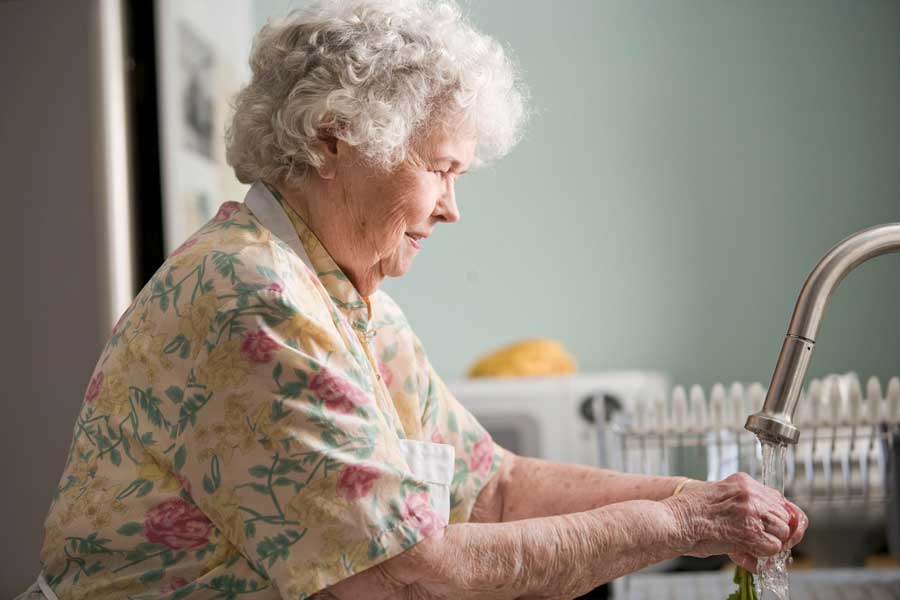
Deciding on when should seniors sell their homes is a pivotal question many older adults face as they navigate the changing landscapes of retirement and aging. Selling a home is a significant decision and it’s essential to weigh the benefits and drawbacks based on individual circumstances. Here we’ll explore several indicators that might signify it’s time for seniors to sell their home.
When Affordability Has Changed
For seniors on a fixed income, homeownership can sometimes become a financial burden, particularly when the cumulative costs of mortgage payments, maintenance expenses, HOA fees, and property taxes begin to stretch the budget. Selling their home in such circumstances may be a sensible option, as it can alleviate financial stress and offer a path to a more sustainable living arrangement. When finances have become a burden, here is how selling the home could help:
-
Reduce Living Costs:
- Selling a home removes the ongoing financial commitments tied to the property, including mortgage payments, property taxes, insurance, and HOA dues, providing seniors with immediate financial relief.
-
Access to Equity:
- Homeownership often represents a significant portion of a senior’s net worth. Selling the property unlocks this equity, providing a substantial sum that can be used to cover living expenses, healthcare costs, or even leisure activities in retirement.
-
Reduced Maintenance Costs:
- Selling a home eliminates the responsibility and costs of property upkeep and repairs. This reduced financial burden can significantly contribute to a senior’s quality of life, especially if they transition to a living arrangement with less maintenance.
-
More Affordable Housing Options:
- The proceeds from the sale offer seniors the flexibility to explore alternative, more affordable housing options. Whether it’s renting, moving to a smaller home, or transitioning to a senior living community, numerous possibilities become available to better suit their financial situation.
Looking To Buy Or Sell A Home?
Finding the perfect home or the right buyer is easier with the local expert by your side! Our trusted real estate agents are here to guide your every step of the way. Whether you're buying, selling, or just exploring your options, let us help make your real estate journey seamless and stress-free.
A SquareFootHomes Agent is Ready to Help

When Life Goals Have Changed
As seniors age and enter different phases of life, their goals, priorities, and needs can shift significantly. Selling their home can be a strategic move to align their living situation with their evolved life goals.
Budget Simplifications
Life goal changes often come with a reassessment of financial priorities. Selling a home can simplify a senior’s budget by eliminating variable and unpredictable homeownership costs, such as property taxes, insurance, and maintenance fees. This budgetary simplification enables seniors to reallocate funds to align with their new goals, whether it’s traveling, investing in new hobbies, or supporting family members.
Relocation Opportunities
Changing life goals may involve a desire or need to relocate. Seniors might wish to move closer to family, to a location with a more favorable climate, or to a place that offers amenities and activities aligning with their new interests. Selling their home provides the financial flexibility to explore these relocation opportunities, helping them live in an environment that better suits their evolved aspirations.
Reduced Maintenance Responsibilities
Maintenance isn’t only a financial burden, but it’s also a responsibility. As seniors reassess their life goals, they might prioritize reducing these daily responsibilities to free up time for leisure, volunteering, or spending time with loved ones. Selling a home and transitioning to a more manageable living arrangement, such as a condominium, apartment, or assisted living facility, can significantly decrease maintenance duties, allowing more time and energy to be spent on fulfilling new goals.
Social and Community Integration
Altered life goals often involve a reevaluation of social needs. Selling a home can facilitate a move to a community or neighborhood that offers better social integration, more suitable recreational activities, and an environment that fosters a sense of belonging and community, essential for well-being in the senior years.
Health and Wellness Prioritization
A shift in life goals often brings a renewed focus on health and wellness. Selling a home and relocating can provide seniors with access to locations with better healthcare facilities, recreational spaces, and wellness amenities, enabling them to prioritize their health and live a more active and fulfilling life.
Change is Challenging For Seniors
Seniors might find change tough for a few reasons. As people get older, their bodies and minds might not adapt as easily to new things, making it harder to get used to different situations or places. Older folks often like things that are familiar and safe, so any new change can feel really big and sometimes scary.
Consider A Reverse Mortgage
When trying to determine “When Should Seniors Sell Their Home?”, something that should be considered is a reverse mortgage. A reverse mortgage is a special type of home loan designed specifically for homeowners aged 62 and older, enabling them to convert a part of the equity in their homes into cash while retaining homeownership. Here’s how it works and how it can assist seniors in remaining in their homes:
What It Is & How It Works:
- A reverse mortgage allows seniors to borrow against the value of their homes. Unlike a traditional mortgage, where the homeowner makes monthly payments to a lender, a reverse mortgage pays the homeowner, either through a lump sum, monthly payments, or a line of credit.
- The amount a senior can borrow depends on several factors, including age, the appraised value of the home, current interest rates, and lending limits.
- The homeowner retains the title to the home and is still responsible for property taxes, insurance, and maintenance.
- The loan does not need to be repaid as long as the borrower continues to live in the home, maintains the home, and stays current on property taxes and insurance.
- The loan becomes due and payable when the last surviving borrower sells the home, permanently moves out, or passes away.
How It Helps Seniors Stay in Their Home:
- Financial Flexibility: The funds from a reverse mortgage provide seniors with additional financial resources to cover daily living expenses, medical costs, home modifications, or other needs, thus easing financial strain.
- No Monthly Mortgage Payments: Since there are no required monthly mortgage payments, seniors can experience reduced financial stress. However, they must continue to pay property taxes, insurance, and maintenance costs.
- Aging in Place: The extra income from a reverse mortgage can make it financially feasible for seniors to make necessary home modifications or hire in-home care services, thereby allowing them to age comfortably in their homes.
- Preserving Other Savings: The proceeds from a reverse mortgage can help seniors avoid drawing down too quickly on other retirement savings and assets, preserving their overall financial stability.
Finding The Right Real Estate Agent For Seniors
If the right decision is to sell the home, then it’s really important to find a real estate agent who understands the unique needs of seniors and is willing to work at their pace can make the process smoother, more comfortable, and more advantageous.
-
Understanding Specific Needs:
- Seniors might have specific needs and preferences, such as downsizing, moving closer to family, or finding a single-story home to avoid stairs. A good real estate agent will take the time to understand these needs and find suitable options, ensuring that the senior’s next home aligns with their lifestyle and requirements.
-
Pacing the Process:
- The process of selling a home can be stressful and fast-paced. An empathetic agent who is willing to work at a senior’s pace can help alleviate stress, answer questions thoroughly, and provide ample time for decision-making, ensuring the senior feels comfortable and confident throughout the transaction.
-
Navigating Paperwork and Legalities:
- The legal and administrative aspects of selling a home can be complex. A knowledgeable agent can guide seniors through the paperwork, explain terms and conditions in understandable language, and ensure all legal requirements are met, safeguarding the senior’s interests.
-
Maximizing Financial Outcomes:
- An experienced agent will have a keen understanding of the property market and will be able to advise on the best time to sell, pricing strategies, and negotiation tactics. This expertise is essential for seniors to maximize their financial gain from the sale, which can significantly impact their financial security in retirement.
-
Assessing Future Living Options:
- A good real estate agent can assist seniors in exploring and assessing future living options that suit their needs and budget, whether it’s a smaller home, a retirement community, or a rental property. Their insight and connections can be invaluable in finding the ideal next home.
-
Emotional Support and Guidance:
- Selling a family home can be an emotional experience for seniors. A compassionate and understanding agent will provide emotional support, listen to concerns, and offer guidance, making the transition easier and less daunting.
-
Accessibility and Communication:
- Consistent and clear communication is vital during the home-selling process. A good agent will be accessible, keep the senior informed at every stage, and be responsive to their queries and concerns, fostering trust and ensuring peace of mind.
Conclusion
Only the senior, along with their immediate family, can really determine whether its the right time or not to sell their home. The moment must feel right for everyone, the senior the most. People must take care and deep consideration when thinking about this move because often times seniors have a difficult time adjusting to a new life and just want the familiarity of home. The Department of Housing and Urban Development has resources to help guide seniors on how to stay in their homes.
 Back
Back
